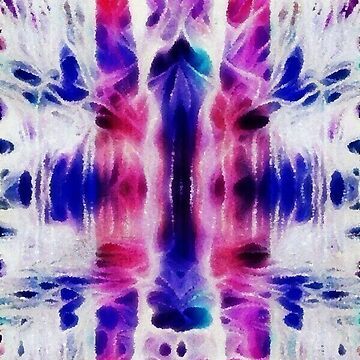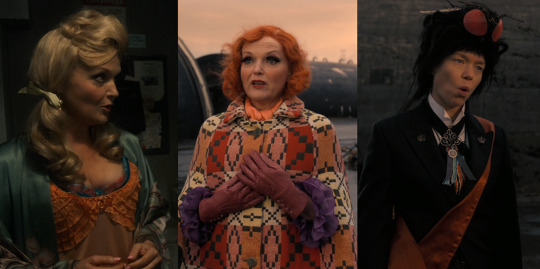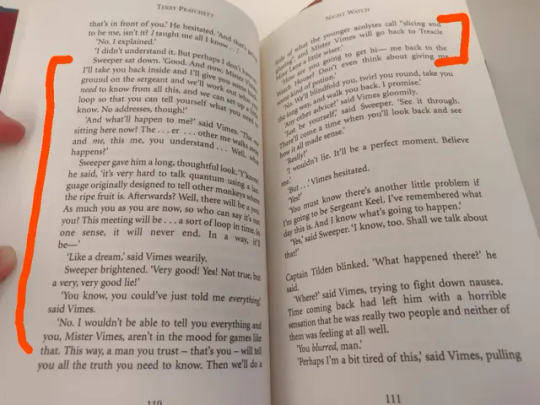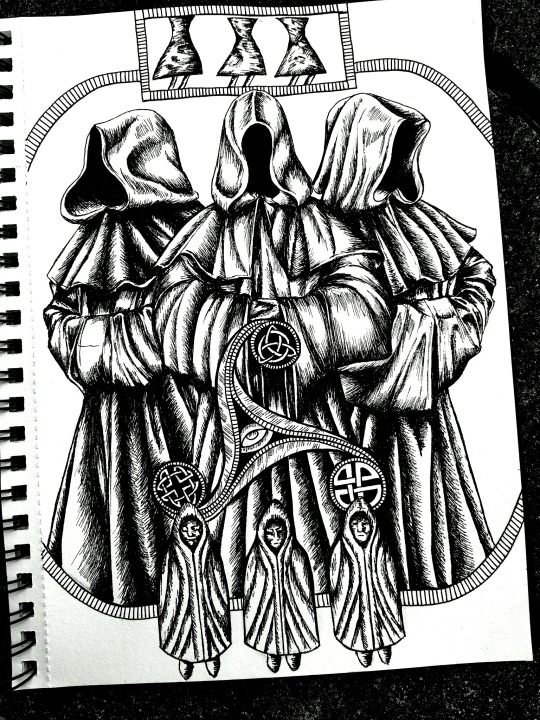#monk otherworldly
Explore tagged Tumblr posts
Photo








(via "On my passions i walk " Graphic T-Shirt for Sale by Inspire76)
#findyourthing#redbubble#monk#preyingmonk#otherworldly#heavy metal#heavy metal music#metal designs#i love metal#bang your head
0 notes
Text
100 Vocabulary Words for Gothic Fiction | For Writers

Hello Writers! I've put together a list of 100 words to help you expand your vocabulary for writing gothic fiction in October. I categorized the words for easy reference. I did some research using thesauruses and dictionaries to compile this list for you. I hope you find it helpful! 👻🎃
Atmospheric Words
Tenebrous - dark and gloomy
Oppressive - overwhelming and unpleasantly powerful
Ominous - suggesting evil or harm is imminent
Eerie - strange and frightening
Uncanny - mysterious and unsettling
Nefarious - wicked or criminal
Malevolent - having evil intentions
Sinister - giving the impression of evil
Melancholy - deep sadness
Lugubrious - mournful or dismal
Sombre - dark and gloomy
Dreary - dull and depressing
Desolate - empty and lonely
Bleak - cold and depressing
Dank - unpleasantly damp and cold
Character Descriptions
Pallid - abnormally pale
Gaunt - thin and bony
Haggard - looking exhausted and unwell
Cadaverous - corpse-like
Wan - pale and sickly
Spectral - ghost-like
Enigmatic - mysterious and difficult to understand
Brooding - appearing darkly thoughtful
Tortured - suffering mentally or physically
Macabre - disturbing due to focus on death or injury
Architectural Features
Gothic - relating to medieval style architecture
Dilapidated - in a state of disrepair
Decrepit - worn out or ruined due to age
Crumbling - breaking into small fragments
Decaying - rotting or decomposing
Ramshackle - in a state of severe disrepair
Crypt - underground room or vault
Turret - small tower on a building
Parapet - low protective wall along the edge of a roof
Buttress - structure built against a wall for support
Supernatural Elements
Apparition - ghost or spirit
Phantasm - figment of the imagination
Specter - ghost or phantom
Wraith - ghost or spirit
Revenant - person who returns as a spirit after death
Ethereal - extremely delicate and light
Otherworldly - belonging to an imaginary or spiritual world
Paranormal - beyond normal explanation
Preternatural - beyond what is normal in nature
Occult - supernatural or magical
Emotions and States of Mind
Dread - great fear or apprehension
Foreboding - fearful apprehension
Trepidation - fear or anxiety about something that may happen
Anguish - severe mental or physical pain
Despair - complete loss of hope
Melancholia - deep and long-lasting sadness
Hysteria - exaggerated or uncontrollable emotion
Delirium - state of confusion and hallucination
Madness - state of severe mental illness
Obsession - persistent disturbing preoccupation with an idea or feeling
Gothic Settings
Moor - area of open, uncultivated upland
Wasteland - barren or desolate area
Labyrinth - complex maze-like structure
Catacomb - underground cemetery
Dungeon - dark underground prison
Mausoleum - building housing a tomb or tombs
Sepulcher - small room or monument where a dead person is laid
Necropolis - large cemetery, especially an ancient one
Citadel - fortress that commands a city
Monastery - building occupied by a community of monks
Weather and Natural Phenomena
Tempest - violent windy storm
Miasma - unpleasant or unhealthy smell or vapor
Fog - thick cloud of tiny water droplets
Mist - cloud of tiny water droplets in the air near ground level
Gloom - partial or total darkness
Twilight - soft glowing light from the sky when the sun is below the horizon
Umbra - the fully shaded inner region of a shadow
Penumbra - the partially shaded outer region of a shadow
Crepuscular - resembling twilight; dim
Tenebrous - dark, shadowy, or obscure
Literary Devices and Narrative Elements
Foreshadowing - warning or indication of a future event
Omen - event regarded as a portent of good or evil
Portent - sign or warning that a momentous or calamitous event is likely to happen
Harbinger - person or thing that announces or signals the approach of another
Presage - sign or warning that something will happen
Doppelganger - look-alike or double of a living person
Grotesque - comically or repulsively ugly or distorted
Gothic double - character representing the duality of human nature
Unreliable narrator - narrator whose credibility is compromised
Frame narrative - story within a story
Liminal Spaces and Concepts
Threshold - strip of wood or stone forming the bottom of a doorway
Liminal - occupying a position at, or on both sides of, a boundary or threshold
Betwixt - in between
Interstitial - of, forming, or occupying interstices (small spaces between things)
Twilight zone - undefined or intermediate area between two distinct states
Purgatory - place or state of temporary suffering or expiation
Netherworld - imaginary subterranean world of the dead
Abyss - deep or seemingly bottomless chasm
Void - completely empty space
Chthonic - concerning, belonging to, or inhabiting the underworld
Miscellaneous Gothic Terms
Sublime - of such excellence, grandeur, or beauty as to inspire awe
Ineffable - too great or extreme to be expressed or described in words
Eldritch - weird and sinister or ghostly
Atavistic - relating to or characterized by reversion to something ancient or ancestral
Numinous - having a strong religious or spiritual quality; indicating the presence of a divinity
Happy writing, and Happy October! 📜🕯️- Rin T.
#GothicFiction#WritingTips#VocabularyBuilding#DarkLiterature#AspringAuthors#thewriteadviceforwriters#writeblr#writing#on writing#how to write#writers and poets#writers block#creative writing#writing tips#writers on tumblr#authors#author#book writing#authors of tumblr#women writers#writerscommunity#writer#authors on tumblr#writersblock#fantasy writer#resources for writers#helping writers#writers#writerslife#writersociety
2K notes
·
View notes
Text
Top 17 Most Mysterious Nakshatras

Purva Bhadrapada: The Dark Magician. Natives' boiling energy and their curiosity about the other worlds make them extreme in their spiritual practices. Depending on their level of maturity, they can fall into harsh malevolent practices. Natives usually have a lot of occult knowledge and most importantly, they can contact otherworldly entities, especially the aliens. They are connected to graveyards and some saints.
Ardra: The Ascetic Monk. Natives' power lies in their intense emotions. Their emotions can make them so tough they can ignore physical pain. They are healers, hermits. They tap into the energy of nature, mostly mountains and forests. They can predict the weather, they are able to bring rain. They can perform extreme spiritual practices.
Ashlesha: The Hypnotic Witch Queen. Sensitivity is natives' power. They can sense anything in their surroundings, hence a strong intuition. They can dive into the human soul and spot any weaknesses. They can read your mind. They are very magnetic. Natives should trust their Vastu/Feng Shui abilities and their healing skills.
Mula: The Exorcist. Natives have a strong root chakra, which makes them invincible. Thus, they are more sensitive to the telluric currents, the caves, the ruins and the ancient temples. They often deal with negative spirits and when they are well prepared, they can expel them. Natives are usually interested in the occult and they often do research in that field.
Shravana: The Wise Wizard. Natives' gift lies in their connection to the Source and their absorption ability. They can get glimpses of their past life memories, which help them in their current lifetime. For example, they can remember some bits of a language they used to speak in a previous life and use it in their job today. They can perceive guiding voices and see spirits. They easily sense their environment.
Shatabhisha: The Druid. Natives' mind is their strength. They are highly connected to nature, hence their healing abilities. They see things people do not: they are excellent at discovering occult secrets through many disciplines, such as medicine or astrology. They can invent new ways in their field, such as healing naturally. They can get involved in secret societies.
Jyeshtha: The Sorcerer King. Natives know the power of the occult too well. If they are scared of it, they cover themselves with protective talismans and do specific prayers. Or, if they do not, they perform strong rituals or they get involved in occult societies in order to gain power... But there is a price to pay.
Magha: The Archmage King. Natives' strength lies in their connection to their ancestors and their knowledge. They can dream of their ancestors and receive their messages. But because they can contact them, they can have out of body experiences, sometimes they can even have a near-death experience. Natives usually chase spiritual knowledge and occult powers and they end up mastering them very well.
Hasta: The Fortune Teller. Natives' power lies in their hands and words. They can be very good at palmistry, tarot card reading, healing (especially with hands)… Their mantras and spells are always highly effective.
Uttara Bhadrapada: The Mystic. Natives' strength lies in their connection to the atmosphere and clouds. That is why they are able to bring rain. They tap into rain and water's energy. Their spiritual practice is deep and their devotion to their Gods make them stronger... And threatening if they choose the wrong side.
Revati: The Psychic. Natives' power lies in their connection to the other worlds. They can have astral traveling experiences; they can contact the dead, the divinities; they can receive messages from beyond and become prophets.
Ashvini: The Healer. Natives' strength lies in their vitality and their connection to the other worlds. When they are in the medical field, they can perform miracles. They can discover secrets on life and immortality. They can be good at channeling spirits.
Bharani: The Ancient Patroness. Natives' power lies in their connection to the other worlds and their raw strength. They can connect to other planes and ghosts. Natives feel linked to the pyramids (in Egypt and/or from other places), some tombs of saints and the primordial feminine energy (shakti).
Purva Ashadha: The Regenerative Healer. Natives' strength lies in their incredible restoring vigor. Their energy is such that they can invigorate anyone around them, as well as crumbling activities. Natives do wonders with a pendulum.
Anuradha: The Seer. Natives’ power lies in their faculty to see and receive light as well as perseverance. In the deepest mud of people’s minds, using a coded chart, natives can find out people’s benevolent nature and their shameful secrets. Natives are hard working and patient. They keep so many secrets. That is why they can be very good at numerology, astrology and other occult sciences.
Dhanishta: The Element Master. Natives' strength lies in the natural elements and directions. They can become experts in Vastu or Feng Shui and fix a home. They are good in alchemy, reading pulses and other more spiritual practices.
Purva Phalguni: The Enchanted Fairy. Natives' power lies in their huge amount of luck. A problem happens, a native smiles and it is gone. They can be interested in the occult, usually the traditional knowledge, such as mantras, astrology, and palmistry.
#astrology#vedic astrology#jyotish#sidereal astrology#nakshatras#astro#astro community#astro notes#vedic astro notes#purva bhadrapada#magha#uttara bhadrapada#purva phalguni#hasta#anuradha#jyeshtha#mula#purva ashadha#shravana#dhanishta#revati#ashvini#bharani#ardra#ashlesha#paranormal#palmistry#tarot cards#mantra#occult
513 notes
·
View notes
Text
A Fitting Power-Up
Wei Xun had always been a man of discipline. A Chinese Malaysian fitness influencer, he had built his life around maintaining the perfect physique. Hours spent in the gym, sticking to strict diets, and an intense daily routine had earned him the admiration of millions of followers online. His body—bulging biceps, perfectly sculpted abs, and legs that could press twice his body weight—was a testament to his dedication. But despite all his hard work, he yearned for something more: the stamina, strength, and power that would make him truly unbeatable, something beyond the limits of human potential.

One day, while visiting an ancient temple in the outskirts of Malaysia, Wei Xun encountered a monk renowned for his mystical abilities. The monk, an old man with wise eyes and a quiet, almost otherworldly presence, could sense Wei Xun’s desire for physical perfection.
“Your body is strong, but your spirit still searches for more,” the monk said, his voice like a whisper carried by the wind.
Wei Xun, intrigued by the monk’s insight, nodded. “I’ve worked hard to get where I am, but I want to push beyond my limits—to have the strength, power, and stamina no one else has. I want to be invincible.”
The monk studied him for a long moment, then gestured for him to follow. They walked deeper into the temple grounds, where the monk stopped in front of a shrine. From behind the shrine, the monk retrieved an ancient scroll and a pair of simple black sneakers, worn but well-kept.

“These shoes,” the monk said, “can give you what you seek. They will amplify your strength, increase your stamina, and grant you unrivaled power every time you wear them. But the blessing comes with a price.”
Wei Xun’s eyes widened as the monk continued.
“These shoes will channel the energy of the universe into your muscles, your body, and your spirit. You will be more powerful, more virile, more tireless than ever before. However, should another person wear them, the blessing will transfer to them entirely for as long as they wear them. You will lose everything: your power, your strength, your stamina, and even your body itself.”
The weight of the monk’s words settled heavily on Wei Xun’s shoulders. He stared at the shoes, tempted by the power they promised. But the risk was clear—if anyone else wore these shoes, he would lose it all. Still, the lure of the strength they offered was too great to resist.
Wei Xun agreed.
The monk nodded solemnly and began a ritual. He chanted softly under his breath, and as he did, the air around them seemed to shift. Wei Xun watched as the monk dipped his fingers into a small bowl of water, tracing ancient symbols over the shoes. The atmosphere grew heavy with energy, as if the very essence of the temple was being drawn into the sneakers.
Once the blessing was complete, the monk handed the shoes to Wei Xun. “Wear them with caution. The power is yours as long as you guard them wisely.”
From that day on, Wei Xun’s workouts became extraordinary. Every time he wore the blessed sneakers, he felt his muscles surge with unstoppable power. His strength seemed endless—he could lift heavier weights than ever before, and his stamina during workouts became almost superhuman. He could run for miles, train for hours, and still have energy left to spare. His body, already impressive, became even more chiseled and powerful, his muscles bulging with newfound vigor. His virility seemed boundless, and the energy that radiated from him was magnetic, drawing even more admiration from his growing fanbase.
But Wei Xun didn’t take any chances. He knew the danger that came with the shoes. He kept them hidden, locking them in a secure, custom-made safe in his home. The only time he took them out was when he needed an extra boost—whether it was for a critical workout, a fitness competition, or an event where his strength and stamina needed to be unmatched. No one knew of their existence, and he made sure it stayed that way.
Every time he put on the sneakers, he felt the surge of energy flow through him, an unstoppable force that made him feel invincible. But the memory of the monk’s warning always lingered in the back of his mind. He knew that as long as he kept the shoes safe, the power would remain his. But should anyone else ever wear them, everything he had worked for would be gone.
And so, Wei Xun continued to rise in the fitness world, his body a symbol of perfection and strength, his stamina unmatched by anyone. But hidden beneath the surface of his success was the secret of the sneakers—the power they held and the risk that came with them.
Every time he locked them away after a workout, he felt a sense of relief. They were his secret weapon, but they were also his greatest vulnerability. And he knew that as long as he kept them under lock and key, no one would ever take his power away.

187 notes
·
View notes
Note
Hi, I’ve only read one meta by you yet, but you seem to be just the right person to ask this: did you notice how many people in the scenes outside the bookshop are wearing orange, in series 2?
Any idea what that’s all about? Is it just esthetics, an echo of the bookshop‘s columns, or does it have a filmographical significance? Everytime I watch the show there seem to be more orange clothes, once you start seeing that, it’s crazy how many there are!
Hey thanks for the ask! I mean, you have until 2026 to read more of my drivel so; pace yourself! Orange clothing is definitely an *interesting* choice for extras in film. You almost never see it in background actors clothing because... it draws the eye! The fact that they included so much orange, yellow, and loud patterning in the extras in season 2 is a real decision to throw film tradition and S1 cannon out the window.
I would like to submit my own theory that the choice was made as a deliberate nod to time travel. But first, a little background.
Compare two crowd scenes on Whickeber street from each season: It's kind of nuts that even at microscopic resolution we get such a HUGE difference.


That's not to say orange is missing. Here are the only two extras wearing orange in S1, and they happen to be in the same scene in episode 2, when Newt and Shadwell meet for the first time, discussing occult beings "hiding in plain sight". (witches in this case)


We also get some pretty obvious bright orange in main characters in S1: Madame Tracy and Beelzebub. We meet Tracy in orange as she immediately reveals to Newt multiple hidden identities, see her again wearing orange hair when she communes with spirits, and finally all decked out in orange when she is being possessed by an angel (a person hiding inside a person). Beelzebub wears an orange sash and medal as a high ranking Duke of Hell, so orange is maybe their house colour, or a prestigious colour for hell in general, but after season 2 we know Beelzebub doesn't always have the same face, and is hiding intentions of their own.

Orange doesn't have much biblical significance, mostly because the colour orange was mostly seen as "fire" or "bright" coloured until way after the bible was transcribed, and orange dye wasn't really a thing in the European world until significant trade with east Asia developed. Here's the only other bright orange thing to appear all season, (in a deleted scene): Crowley hiding in plain sight, posing as a maintenance worker.

I think we might be able to draw the conclusion from season 1 that orange is a colour associated with the "Hidden Occult/Power". Not necessarily only hell, but more as something otherworldly, that's hidden in plain sight. (Interestingly, we never ever see Anathema or Agnes Nutter in orange. So I wouldn't say it's related to witches at all.)
In season 2 however, orange is everywhere. More specifically on extras' clothing and the outside of Maggie's record shop.

Maggie seems to be the only main character to wear bright orange herself (E2).

But this is by far my favourite one: in the back of the crowd of demons getting a Shax pep talk in S2E5, there's a regular human extra wearing bright orange sitting amongst the army, completely unnoticed by both demons and audience, observing the plan.

This really set off alarm bells for me, because there's a very Terry Pratchett precedent for powerful and unnoticed orange-wearing characters in the discworld series : the time monks.

Terry's character Sweeper seen here on the original cover of Night Watch. The time monks' clothing and general philosophy is based on Thai buddhist monks, who (like in many buddhists sects) wear donated, saffron-dyed robes in orange and yellow/red to symbolize flames of purity, and to separate them from the world of gross matter, like a fallen leaf from a tree.
In the discworld novel Night Watch, the time monks are responsible for monitoring and cleaning up the timeline, pruning it like a bonzai tree. They are everywhere and yet unnoticed, inside the flow of time yet not of it. And they are the ones who guide the main character through the process of being stuck after falling back through his own timeline, into his own past.

(Excerpt from the book where Sweeper is explaning time travel to Vimes).
Extras circling in the background are called "background actors" because they exist to not be noticed. Put in extras wearing orange/yellow and bright red, and suddenly you can track them, and notice how they are part of the crowd, but stand apart from it. You can notice when they go missing from one cut to the next, or appear to circle or jump between frames. Many extras, including the demon army watcher, also seem to be circling, and monitoring the goings-on in the world of Good Omens. Based on the meaning of orange from S1, it would seem these mere background actors are more than they appear to be. Could they even be checking up on unwarranted time distortions or timeline ruptures happening around a certain Bookshop...?
#good omens 2#art director talks good omens#good omens meta#go season 2#go meta#good omens season 2#good omens season two#good omens#go2#good omens analysis#good omens s2#good omens theory
131 notes
·
View notes
Text
[angels/fallen angels AU]
Characters:
– The Lord of Darkness/Tomelior (Tom): The oldest fallen angel, looking like a centuries-old statue in a resembling a monk's robe with a hood. It hides a pair of dark, piercing eyes that sometimes turn scarlet at a certain angle. Behind his back he has a pair of large dark wings covered with ash with numerous scars from centuries of labor. He wears a ring similar in shape to a beautiful black snake with a very smooth and shiny body and ruby eyes. He is immortal, he lived for about 300 years, but since time flows very differently in Pandemonium, and you can live a whole life here in one hour, this figure is not accurate. The discoverer of evil, proud, decided to challenge the Creator, to take his place. Having sown seeds of doubt and persuaded some of the angels to join him in the struggle for the throne, he began slowly but surely to gather supporters. After hearing about God's desire to create the Earth and populate it with various creatures, including humans, he intended to rule them, making them vassals of his kingdom and distribute crumbs of power to those angels who joined him, who would help him achieve his goal. However, the planned and planned uprising failed: at the moment of the battle with the angelic army remaining loyal to the heavenly throne, a group of rebellious rebels, including Tomelior, were thrown into the otherworld by the forces of the Creator. Falling from Heaven into Pandemonium, and falling from the mercy of the Creator, he had to survive in a new, unexplored environment. Staying in numerous wanderings and searches, he saw a lot: the mysterious lands of this world, the creatures that lived in it, his companions of fallen angels who changed, succumbing to their inner nature. Later, Tom stumbled upon the Land of Eternal Shadows. After exploring it, he settled here, declaring himself its master, the Lord of Darkness. Since then, he has ruled it alone, this vast kingdom. He lives in a cave, spending most of his time alone with his thoughts.
– Harreth (Harry): A bright angelic creature, with immaculately snow-white wings and a more petite body, over which a snow-white Roman toga is draped. On his left ankle he wears a bracelet with beads created by their crystal hailstones. A sweet, pretty face with emerald eyes. Just like the rest of the angels, born and incarnated by the creator initially into a spirit, and then acquired a material shell, kind, innocent, but also stubborn and defiant Harreth spent his entire short, barely begun life in Heaven and knew nothing else. Due to his inexperience, he does not have such inveterate prejudices about the evil and vicious nature of fallen angels. He is still too young for some complicated assignments and is learning the business from the senior angels. All angels must undergo proper training and learn centuries-old knowledge from their teachers before being assigned to be a guardian angel, messenger angel, or warrior angel. Sometimes the instructive instructions of the seraphim and cherubim, as well as a strict system of hierarchies and rules, annoy the restless student and he runs away and explores new territories. So once he accidentally fell into an otherworldly, completely unknown world for him, almost crashing if not for his wings that saved him. By a strange fate, he ended up in the kingdom of the Lord of Darkness, in the Land of Eternal Shadows, and this gives rise to their forbidden relationship.
– Creator (Dumbledore): An eternal phenomenon, present everywhere and nowhere at the same time. The original Self and the cause of all things. No one has ever seen his presence, so no one can tell what he looks like, but everyone has heard his soothing, enveloping voice. He can be completely different: wise and understanding, supportive and loving of his creations, but also cunning and manipulative, and in some moments ruthless. The guardian of the past, present and future knows the beginning and the end of time, but to share this knowledge only with his trusted advisers. There is a duality in him in the desire to leave his creations to determine their own fate, and at the same time in the intention to conceal something for their own personal interests.
[pt.1], [pt.2], [pt.4], [pt.5], [pt.7].
#tomarry#tomarrymort#tmrhp#tom riddle x harry potter#tom marvolo riddle#tom riddle#harry james potter#harry potter#harrymort#voldemort#alternate universe#harry potter au
21 notes
·
View notes
Text
Self-rec time! What are your favorite five fics that you've written and why? After replying to this ask, feel free to pass on to five other writers to spread the love. 💗"
Thanks, @danpuff-ao3! You’re always a treat to see on the dash and I hope you’ve been having a lovely break <3.
I’m always a bit awkward with these, both from an itching sort of discomfort with staring my own artwork in the face, and I think from a lifetime habit of denying compliments out of a feeling of guilt or fear. So! I’ve had a glass of wine (and an edible) and I’m going to try to kinder to myself. I might be in the mood to talk right now. (Honestly, that’s a good sign. One of the big elements of my recent writer’s block has been an inability to express myself in any written way, even tumblr posts and comments. Maybe this is why I hit twitter so hard.)
My five favorite fics. Not my five best fics. Not my five most popular fics. My favorites. Hmm.
5. blood, bones, and butter | MDZS/The Untamed] SongXueXiao | E, 12,443
“A relationship, deconstructed. Served three ways.”
Ah, Yi City, that deliciously painful Shakespearean tragedy echoing Wangxian’s romance. The specific notes of obsession, revenge, love, and grief that run through these three make me completely unhinged. I love the quiet service and stoic devotion of Song Lan, the otherworldliness and power of Xiao Xingchen, the unchecked brilliance and cruelty that fill up Xue Yang. The Yi City fandom is easily one of the most incredible fandoms I’ve ever been a part of, full of uniquely talented and deranged writers and artists who love to really explore the dark edges and nitty-gritty of these character and let them be their fucked-up selves. The appeal of SongXueXiao isn’t to make it better for them, it’s to see how much you can make it worse.
It’s two pretty classic tropes: a first time after meeting at a bar, and also a story told from alternating POVs. I really wanted to focus on trying to carve out distinctive interiorities, like their motivations, their assumptions, their fears, their memories, and allow the reader to draw their own conclusions without spelling these all out outright. I’d recently rewatched Rashomon, and I love how the understanding of an event can be so differently shaped by each person’s POV and I wanted to show their first night together in that way, moving the lens over the night a few times, before it gets clear. It was a really fun process to focus on and I think it’s one of my best pieces of recent writing.
4. in search of the wind | Good Omens | Crowley/Aziraphale | E, 27,112
After the World Doesn't End, Aziraphale is not returned to his body. Crowley tries to find a way to get to Heaven's fast-shut gates. Aziraphale tries to find his way back from the sky (and back in time).
I remember writing this almost immediately after the show aired, in that heady summer of 2019, when I feel head over sweaty heels for that charming demon and his delicious epicure of an angel. This is essentially how I saw canon going on, this is the headcanon of my soul. Maybe that’s why I haven’t seen season 2 yet? It was a pleasure to write, almost like knitting together different scenes, different pieces of history, like an extended version of the s1s3 cold open. It’s Aziraphale without a body, unmoored in time, turning up at different points along his and Crowley’s history, and realizing that his friend is in love with him. That his friend is heartrendingly in love with him. I love stories that play with structure, striking different chords each time.
I couldn’t write this kind of story again. This belongs to a very specific time.
3. White Light, White Heat | Harry Potter | Snape/Harry | E, 32,107
“In 1347, Benedictine monk and scholar Severus Snape goes to fetch a young man joining the abbey. In 1347, rumors come of a strange and unrelenting plague from the east.”
An AU set in a fourteenth-century Benedictine monastery in Britain during the period of the Black Death where the two men develop a bond through a special sort of crucible. Snape, as always, falls in love with all the grace of a cat being given a bath. As dark as the material is, this was a pleasure to write. I had so much fun describing the setting, peppering fun little facts like a Pop Up Video of Medieval History. I wrote this in a fever-fueled three weeks, absolutely obsessed with getting it down exactly as it was in my head. I loved writing the monster theme and using it as almost a leitmotif for Snape. There’s probably a literary term for that. Is there? Anyway.
2. the body as anagram | The Terror | Crozier/Fitzjames, Crozier/Ross] | E, 3090
“In the dark, it doesn't matter which James is in his bed. As long as Ross doesn't speak, the illusion holds true.”
I took the title from a passage on J.G. Ballard’s Crash by Baudrillard in Simulacra and Simulation: “Technology is never grasped except in the (automobile) accident, that is to say in the violence done to technology itself and in the violence done to the body. It is the same: any shock, any blow, any impact, all the metallurgy of the accident can be read in the semiurgy of the body — neither an anatomy nor a physiology, but a semiurgy of contusions, scars, mutilations, wounds that are so many new sexual organs opened on the body. In this way, gathering the body as labor in the order of production is opposed to the dispersion of the body as anagram in the order of mutilation.”
There’s something a bit haunting about the parallels of the two men who held the intimacy of Francis Crozier’s friendship. The name. The confidence. The bravery. The charming manner and handsome face. I love the idea of a Francis who sails out pining for one man and returns home loving another, switching between true love and placeholder. And I’m notoriously a slut for both proxyfucking and Gremlin!Francis, who just can’t stop pressing on the wound of his grief. It’s not the drink but it may as well be, for all this is good for either he or Ross, but Francis is a fool in love with a dead man and he does what he does to get by.
Something about this came together, from concept to finish, in a way I’m quite happy with. It was fun to play with concepts and free associate from them, focusing less on plot, but more on the vast empty grief in Francis’ chest. Everyone here knows this is a bad idea. No one is having a good time.
1. Revachol Calling | Disco Elysium | Karry/Kim | E, 35,321 [WIP]
“Somewhere in Jamrock, a church burns. A study in Kim Kitsuragi.”
Sometimes you just feel the next part of the story in your bones. When I first played Disco Elysium in 2021 it hit me in an incredibly familiar, emotional way. There’s something somber and hopeful about it. The writing is sardonic, dark and humorous. It’s nearly cynical but it’s cynical with a sad old smile, because cynicism is born through disappointment, and through not quite being ready to give up. I think we can all find ourselves in it, in one way or another and, like many, I’m hopelessly in love with Kim Kitsuragi, a wild creature who’s built himself within thousands of rules. I can’t play the game without craving his side of the story, his interiority, his history, so I grab at the little crystals of information, such as his secret love of Speedfreaks FM and his past with Eyes, and I try to imagine it might go. This is my sequel to the game and, more than anything, this is my love song to Revachol, a character of a city, and one that echoes vastly in all those of post-Communist country and family.
For some reason, this fic is extremely visual for me and usually in a Wong Kar-Wai sort of fashion. Think the saturated aquamarines of a neon diner sign. Think a studio apartment with cheap wallpaper and the yellow-orange flicker of sodium lights. It comes alive at night, when Kim is left alone with his thoughts, running out of rules to keep him safely in. I love that Disco Elysium has such a vast world to explore. It’s an endless playbox.
And this is also, in a way, a bit of an elegy to a belief I’d once held in a motherland, and do not anymore.
I’m almost done with Chapter 8, so hopefully it will be up soon <3
Tagging! @jaggededges123 @soft-october-night @wildcard47 @rcmclachlan @brawlite @zaxal @pearwaldorf @kiingbooooo @darcylindbergh @et-in-arkadia @itsevidentvery @iodhadh @iamwestiec @mia-ugly @laurashapiro-noreally @pinehutch and anyone else who wishes to!
37 notes
·
View notes
Text

Stingling -> Slimecho -> Harmonophore
Stingling, the Zooid Pokemon. It may resemble Chingling, but it is an unrelated species from the ocean floor. It creates a curious ringing sound to attract prey. Once inside its mouth, the prey is digested by the venomous orb inside. Poison/Ghost
Slimecho, the Siphonophore Pokemon. Despite its resemblance to Chimecho, it is actually a relative of Tenthereal. It envelops enemies in its trailing stingers until they submit. It is called the Herald of the Deep for its eerie singing. Poison/Ghost
Harmonophore, the Sea Monk Pokemon. Scientists have noted a superficial similarity to Harmonecho. It glows with an otherworldly light as it fills the abyss with hymn-like songs. The first exploration that discovered them was ended abruptly. Poison/Ghost
9 notes
·
View notes
Text

Excalibur, from The Boy’s King Arthur by N. C. Wyeth (1919)
The Arthurian Saga. The Land, The King
The Arthurian legends are deeply intertwined with places across the British Isles, each imbued with mystery, spirituality, and connections to the faery realm. Here are some of the most notable:
1. TINTAGEL CASTLE, CORNWALL
Significance: Often regarded as the birthplace of King Arthur, Tintagel’s windswept cliffs and the ruins of the medieval castle exude a mystical atmosphere. According to legend, Merlin lived in a cave below the castle, and the place is seen as a bridge to the faery world.
Spiritual and Magical Aspects: Tintagel has long been linked with faery lore and the supernatural, its caves and rocky coastlines considered thresholds between worlds. The landscape around Tintagel is full of powerful ley lines that attract seekers of Arthurian mystery.
2. GLASTONBURY TOR, SOMERSET
Significance: One of the most hallowed sites in Arthurian legend, Glastonbury Tor is linked with Avalon, the enchanted isle where Arthur was taken to be healed after the Battle of Camlann. Legends suggest that the Tor is a gateway to otherworldly realms.
Spiritual and Magical Aspects: The Tor is crowned by St. Michael’s Tower, and the hill is associated with ancient pagan traditions. The nearby Glastonbury Abbey claims to hold Arthur's grave, discovered (or constructed) by monks in the 12th century. The site’s faery lore is strong, with tales of mystical lights and visions of the fae in its ancient hills and springs.
3. DOZMARY POOL, BODMIN MOOR, CORNWALL
Significance: This small lake on Bodmin Moor is reputed to be where Sir Bedivere cast Excalibur back to the Lady of the Lake after Arthur's final battle. It is a liminal space, seen as the watery portal to the Otherworld.
Spiritual and Magical Aspects: Dozmary Pool is said to be inhabited by spirits and faeries, and locals believed for centuries that the pool was bottomless, adding to its supernatural reputation. The waters are linked to the realms of faery and the Lady of the Lake, who embodies both enchantment and mystery.
4. CADBURY CASTLE, SOMERSET
Significance: Thought by some to be the true location of Camelot, this ancient hillfort has long associations with Arthurian legend. Local tales describe a sleeping army beneath the hill, waiting to rise at Arthur’s command.
Spiritual and Magical Aspects: The site is believed to be sacred and possibly linked to ancient faery practices. Nearby wells and springs were once thought to be magical, and the presence of faery spirits in the woods and caves of the area is part of local folklore.
5. THE ISLE OF ANGLESEY, NORTH WALES
Significance: A place linked with ancient Druidic practices and seen as one of Arthur’s last refuges. The isle has a long history of association with otherworldly beings and faery folk.
Spiritual and Magical Aspects: Anglesey was a centre of Druidic tradition, where ancient magic and Arthurian stories intertwine. Stories tell of faery spirits residing in the wooded hollows and caves, and local lore suggests that powerful magical beings still dwell in its hidden glens.
6. THE FOREST OF BROCELIANDE, BRITTANY (FRENCH BUT WITH CELTIC SIGNIFICANCE)
Significance: Though technically not within the UK, Broceliande in Brittany has strong links to Arthurian lore and Celtic tradition. In British accounts, it often stands in for Britain’s own mystical forests and faery glades.
Spiritual and Magical Aspects: The forest is traditionally home to Merlin, Viviane (the Lady of the Lake), and other faery spirits. It is where Merlin is said to be imprisoned in a crystal cave by Viviane, a powerful enchantress. The forest is steeped in faery lore, with wandering paths and secret pools believed to be portals to the faery realm.
7. THE ROLLRIGHT STONES, OXFORDSHIRE
Significance: Though not directly associated with King Arthur, these Neolithic stones are linked to Arthurian stories as places of enchantment and faery magic. The stones are sometimes called “Arthur’s Knights” or “the Whispering Knights.”
Spiritual and Magical Aspects: The Rollright Stones are considered faery stones, linked with magical forces and potent energies. Stories tell that faery gatherings take place here, and those who attempt to count the stones are enchanted by the fae. Local folklore suggests that they can “come to life” on certain magical nights of the year.
8. CARLISLE, CUMBRIA (ARTHUR’S ROUND TABLE)
Significance: In Cumbria, a prehistoric henge known as “Arthur’s Round Table” is an ancient site tied to Arthurian tales, suggesting that it was a place where Arthur held court.
Spiritual and Magical Aspects: The round henge is surrounded by ancient trees and is thought to be a place of power. Local tales hint at faery encounters near the site and link it to visions of ancient British kings. The spirits of Cumbria’s landscape are thought to be strong here, tied to old Celtic traditions and the fae.
These places form a mystical map across the British Isles, each with its own rich legacy of Arthurian lore and connections to the faery and spirit worlds. Together, they bring the enchanted world of King Arthur and ancient Albion to life.
KING ARTHUR'S RELATIONSHIP TO THE LAND
King Arthur’s connection to Albion—the ancient name for the British Isles—runs deep, symbolising a mystical union between the legendary king and the spirit of the land itself. This connection is represented in both his divine right as a ruler and his close association with Britain’s sacred landscapes, faery realms, and powerful forces of nature.
1. A SOVEREIGN CHOSEN BY THE LAND
In Celtic tradition, a king was more than a mere ruler; he was chosen by the land itself. Arthur’s right to rule was granted through magical signs, such as drawing the sword Excalibur from the stone and being given a new sword by the Lady of the Lake. Excalibur itself was a powerful symbol, an emblem of Arthur’s duty to defend Albion and uphold its mystical and spiritual heritage. His sovereignty, in essence, was a sacred bond with Albion.
2. THE CONCEPT OF THE ONCE AND FUTURE KING
Arthur is famously called “the once and future king,” suggesting he is eternally linked to Albion. According to legend, Arthur will one day return in Britain’s greatest time of need, symbolising that his spirit is bound to Albion’s fate. This idea is rooted in the ancient belief that the land and the king were intertwined, and that the spirit of Albion could be summoned in Arthur’s name.
3. SACRED SITES AND MAGICAL REALMS
Arthur’s life and legacy are marked by Albion’s mystical sites—places like Tintagel, Glastonbury Tor, and Cadbury Castle. These places are charged with supernatural significance, often linked to the faery realm and ancient rites. For instance, Glastonbury is associated with Avalon, an Otherworld island where Arthur was taken to be healed after his final battle. Avalon is portrayed as a mystical reflection of Albion itself, a place eternally verdant and full of magic.
4. GUARDIAN OF ALBION’S PEOPLE AND MYSTERIES
Arthur was seen not only as a warrior-king but as a defender of the British people and their magical heritage. The legend of Camelot and the Knights of the Round Table symbolises a quest to protect Albion’s wisdom and secrets. The Round Table was more than a council of knights; it was a spiritual fellowship aiming to safeguard Albion’s mysteries from foreign invaders and dark forces.
5. ARTHUR’S CONNECTION TO THE FAERY WORLD
Many tales of Arthur hint at his interaction with the faery realm and the Otherworld, both considered intrinsic to Albion’s spiritual landscape. Arthur’s conception and many adventures have roots in these liminal spaces, bridging the mortal world and the mystical one. He often encounters faery beings and Otherworldly foes, showing his role as a mortal champion interacting with the ancient spirits and guardians of the land.
6. ARTHUR’S FINAL RESTING PLACE
Arthur’s departure to Avalon is symbolic of his eternal bond with Albion. Avalon is a mystical island thought to be hidden within or beyond the borders of Albion, mirroring the hidden spiritual forces within the land. Many believe that his return will come from Avalon, signifying the resurgence of Albion’s spiritual power when it is most needed. Glastonbury is sometimes called his grave, yet the stories of his return suggest that he remains Albion’s guardian, even in death.
Arthur’s deep connection to the land of Albion reflects the ancient British belief that kingship was a sacred role, bound by blood, spirit, and duty to the land. Albion’s landscapes, legends, and faery lore are as much a part of Arthur as he is of them, making him an eternal emblem of Britain’s magical and spiritual heritage.
11 notes
·
View notes
Text
The Apothecary Diaries LN3 Thoughts - Ch15-17
LN 3: Prologue-ch2 - ch3-5 - ch6-8 - ch9-11 - ch12-13 - ch14
Alright folks, we're building up to the big one. You know what I'm talking about. Still a bit more to go until 🐸, so let's continue chugging along to the big climax and conclusion of this particular volume.
(Warning: These thoughts may contain spoilers from later light novels all the way up until LN15.)
Chapter 15 - Scary Stories



Just a few silly/small moments that I highlighted. First, we love our little gremlin kitty cat. For real though, I love how Natsu-sensei stuck with this little storyline of Maomao obtaining a shed. So cute and hilarious. Maomao is truly lucky that she has managed to find such understanding superiors.
Second, Yinghua is so sweet. Even if she does end up using Maomao as emotional support to go hear some scary stories. Someone save our poor cat.
I took a moment to think about the different scary stories we actually get told in this chapter. Why these stories? What is significant about them? The first story clearly connects to an overall them The Apothecary Diaries has about how things that seem "otherworldly" or "scary" often have a grounded explanation. Maomao's own story also encapsulates this theme, much to Yinghua's exasperation.
What about Shisui's story though? It's definitely a creepy story - it reminds me of something you'd see from "Tales of the Cryptkeeper" (for those of you who understand that reference, lol). I don't think there is any foreshadowing to pick up on from this story, but I can see how the monk can kind of connect to Loulan. Keep your head down (recite the sutras/Loulan being the "perfect daughter"), stick to your values (don't stop reciting the sutras/Loulan's own personal agenda), and that can save you from harm--and when it's done, don't look back (the conclusion to the Shi clan arc). It's a bit of a stretch--maybe this is an "apple is just an apple" moment, but where's the fun in leaving things that way?
Anyway, curious about what other people might think about Shisui's monk story. I am sure I've read some interesting takes, but for some reason I can't remember any of them right now...
We do get these little observation from Maomao though regarding Shisui that are so fun to pick up on in a re-read when you know what's up.


Oh does she look familiar to you, Maomao? Huh. I wonder why. I do wonder though, how often has Maomao actually seen "Consort Loulan" (whether it's been Shisui or a double). We know Lady Gyokuyou has all but probably stopped inviting guests over for tea so I imagine the chances are probably not that much. Give it to Maomao to recognize faces even if she doesn't care about names though.
The potential "thirteenth" story of the night too - oof. Slowly suffocating to death or dying from carbon monoxide poisoning is something that really freaks me out, so what occurred in this chapter genuinely gave me proper chills. Props to Natsu-sensei for creating layers upon layers in this chapter she beautifully titled "scary stories". She really provided the full range - "scary" stories that are actually just sad stories when you know the truth, stories that are creepy due to a supernatural twist, and then truly chilling real life phenomenon. I hope the anime leans into the horror of this chapter, that'd be fun.

No for real someone save our cat! She's suffering. SUFFERING!
Chapter 16 - Beating the Heat
This chapter starts out with one of the most hilarious interactions Jinshi ends up having with someone. I really miss Lady Gyokuyou for things like this. So smart, clever, and all packaged with a wicked sense of humor.


She really got him good here. What a queen. True future empress material.
So. Interesting thing. I believe this is the first chapter we actually learn that this country is called "Li" and are provided with a general layout of the country and it's provinces.
This stands out to me because I recommended The Apothecary Diaries anime very hesitantly to my sister with the knowledge she would probably be critical of its embellished version of "historical China". She did make a comment about it, and I waffled about whether to let her know it's not actually based in "China", and is a made up country, but then couldn't remember when this info actually gets told. I guess people will find out in S2.
Even though Maomao is dreadfully bored of Basen's lecture, I found it super interesting and I do appreciate the detail that the kanji for "Li" (茘) does fit into the founding of the country.

Small detail here. Given what we learn later about Suirei's mother/Shishou's other wife actually being the former Emperor's daughter... I wonder if his visits were partly to see his kid/grandkid?
Alright, now, after this I basically spend the rest of the chapter screaming internally at Maomao. In hindsight, I truly believe JInshi was actually so patient with Maomao by the time we get to LN5.


Maomao picking up the details of how lavish this house is. How it's clearly for the finest guest. Moments ago she was just thinking about how the Emperor used to visit. There are DRAGONS ON THE FENCE. I know this isn't China, I know, but DRAGONS MAOMAO. I AM SCREAMING (I also low-key blame Basen for rushing her, damn it Basen let her observe)!
Another small detail. I love the description in English of Jinshi "flouncing". I also love how Maomao just accepts Jinshi wearing a mask with the logic that he's just so pretty of course he would have to cover his face. It's so funny seeing how illogical Maomao gets sometimes when it comes to Jinshi's attractiveness and why he may be hiding his appearance. Maomao, I don't think Jinshi is concerned about accidentally killing a random townsperson with his beauty, please. Come on, you have a medical background. You know how unlikely that could be. Can you really not think of any other reason someone of clearly super high importance might want to hide their face in public? Not any other reason? But also -- Maomao recognizing how tired Jinshi is. Something that will start happening more and more <3.
Also poor Basen. I remember when we first met Basen in LN1 I questioned why he was so grumpy at Maomao. In the beginning I assume he knew that Maomao didn't know Jinshi's true identity, but did he assume after Maomao started working in Jinshi's house that someone would've told her by now? Anyway, his shock at learning Maomao has no idea who Jinshi actually is is kind of hilarious.

I found this conversation really cute in the original Japanese. It's still amusing in English, but in Japanese Jinshi's language is much more curt, informal and almost pouty. He just sounds so put-off, but also there's a morbid fascination/curiosity you can sense as he watches Maomao happily eat the food with zero effect. And then that moment of curiosity as he asks about her memories of softshell turtles (which I'm sure he later regrets asking about, hahahaha).

Basen is truly having a rough night.
Chapter 17: The Hunt (Part One)

You could stand to think about the question even just a bit Maomao. Please. Once again, there are DRAGONS AT THE HOUSE.

Jinshi :) Although this does make me curious about what Jinshi was expecting from this outing and what role Lihaku was actually supposed to have. He ends up being useful anyway, but I doubt "find me and Maomao in a cave" was what Jinshi actually wanted from him.

Seriously, Maomao, you could stand to be a bit more curious. I'm begging you.
For real though, given what we know is coming up next chapter, I do actually kind of love how Natsu-sensei really amps up the notion that Maomao is truly working her absolute best to be as frustratingly obtuse as possible compared to other situations.
If we compare this with how she approaches Shisui it's kind of fascinating. With Shisui she actively notices some oddities, but doesn't have enough clues to put anything together, so she doesn't. But she still notices. She makes note of it. For Jinshi though? Clues are literally slapping her in the face and she has to actively tell herself "it doesn't concern me", she has to actively choose to not pursue things, and if she think of theories she comes up with the most illogical reasoning. It makes me want to scream at a wall.

<3. I just really love this moment. As Maomao says - whatever her opinions of his general behaviour, she respects the effort he puts into his public persona enough to know that if he is slipping, something must be wrong.

I'm with Maomao. I feel like in Japanese it's even more funny because what he says more literally is "Sorry, I'm going to surprise you a bit" and then LEAPS OFF A CLIFF. Yeah, that's not a "little surprise" dude. I can already imagine Maomao's VA voicing the line perfectly as she plummets down below.
And there we have it! What will happen next? Do they survive? Will some frogs show up? Whose to know? Certainly not me. Until next time!
8 notes
·
View notes
Note
hi! so the whole dnd universe is completely new to me, and i'm a bit lost. do you know how people there choose their class? like, some obv have a connection to magic (or the weave~) from birth. but other than that, anyone can learn anything? idk you seem like a great person to come to for such advice. thanks in advance <3
(far from a dnd expert but generally familiar with the system so i will do my best!!)
broadly yeah anyone can learn anything!! there’s no hard line between people with magic and people without, for example. each class has its own fantasy to where the powers come from, but the reason multiclassing is possible is these are usually skillsets you can gain one way or the other
among the bg3 classes, sorcerors are unique in that nobody chooses to be a sorceror; maybe you have a magical bloodline, or some exposure to otherworldly or magical power gave these powers to you. wizards and bards learn their magic, through lifelong arcane study or mastering the power within song and charismatic speech. warlocks have made a binding pact with an otherworldly being, their “patron” who (often for their own nefarious ends) grants them power. fighters, barbarians, monks, and rogues have spent their lives honing their particular fighting styles for whatever reason. rangers do the same, as well as drawing on a connection to nature for some magic, whereas druids truly focus on that connection and have learned to fully utilise those powers of nature as full casters and shapeshifters. and paladins and clerics are granted divine power through their powerful devotion to a cause or a god
anyone can pick up most classes, within reason; to have learned one of these skillsets, your character probably also has to have a natural aptitude for the associated ability. for example, anyone can take levels as a wizard, but your character will need a high intelligence score to use those spells well, so we can surmise that probably only if your character is good at studying spells would they have been able to become a successful wizard. only a charismatic person would be able to become a gifted bard, only a dextrous person would be able to become a skilled rogue, only a wise person would be able to utilise the full abilities of the monk, etc. etc. if that’s a helpful starting point
it’s designed for people to be able to flexibly create their own characters from any background they like, so you can put lots of your own creative flavouring on where characters got their skills :) specific subclasses can also sometimes give you a bit more direction on it
20 notes
·
View notes
Text
Cyrus D&D Subclass Pairings!!
Artificer: alchemist. Artificing & int-casting generally aren't his thing, but some versions of the character become quite proficient with herbs, potions, and poultices
Barb: ancestral guardian. This is Durge!Cyrus' subclass, and I love it so much (and im not mad at all that larian chose giant over this or zealot for patch 8....) I love the barb subclasses that skew more support, bc it's more interesting than just hitting things over and over and over again. Connection to the past is always an important part of Cyrus' character, whether it's his victims in Baldur's Gate like for Durge!Cyrus or Kirkwall's history or, once he's pulled out of the Fade, Arlathan and Elven history
Bard: valor. Bard is the one charisma caster i've never given much thought to for Cyrus, even though he would love being a support caster, just because like. Creation & artistry & performance aren't important parts of his character. So there were two obvious choices: swords or valor. I went valor for the extra proficiencies & also combat inspiration my beloved
Cleric: peace. I had to rotate this around a lot bc there are a lot of different directions I could go with, but what I eventually landed on was: what domain or aspect of being is so important to Cyrus that, despite his historic and destructive propensity toward self-reliance, he would depend on a deity to help him, and it's peace (and also protective bond my beloved.......)
Druid: dreams. I had to get some fey/fade guardian vibes in there somewhere! Wildshaping is also a. Fraught notion for cyrus & his body issues, but none of the subclass abilities depend on that
Fighter: champion. Ranger!Cyrus' subclass. No other comment.
Monk: sun soul. He needs some amount of fire themeing! Let him be radiant!!
Paladin: i wont choose and you cant make me. All of them at once.
Ranger: fey wanderer. Notably not the actual subclass of the actual ranger version of Cyrus, who is a gloomstalker, but as much as I love dread ambusher, the rest of the subclass doesn't really fit. This hits the same themes as Circle of Dreams, while also adding some fun things I associate with his character, like defenses against charmed/frightened
Rogue: um. The pathfinder thug archetype. Scout taps into some of the ranger vibes at least, it's just like. I've never given him any dexterity at all. He's supposed to go clankclankclank.
Sorcerer: shadow. Oh you wanted to die? Too bad. (The real ones will remember that shadowsorc!Cyrus was actually a very real concept at one point!)
Warlock: hexblade. Swordswordswordsword
Wizard: abjuration. Spiritual successor to laerryn coramar-seelie absolute TANK of a wizard let him cast otherworldly guise and just start going to town & also i love you projected ward
9 notes
·
View notes
Text
Idea: a child who, every full moon, switches between worlds. This was a condition that they’ve had since birth, and have been extremely lucky to survive past infancy with. The monks and nuns call it “being stolen by the fae”, Child protective services call it “exceptionally prone to running away”, they themselves like to call it a custody agreement between two recently divorced universes. Either way, they know many things they shouldn’t, are inexplicably magical, and never where they are supposed to be. Switching between is always bothersome, because it’s nearly always taken them to places far from where they originally were last time. They find that if they return to the place they switched to in the other universe, they usually end up roughly in the same spot they were when they left, but that doesn’t always work out for various reasons. It is quite fun confusing the clergy with otherworldly knowledge and speaking Latin and old English to modern drunks in alleys though.
#reverse isekai#isekai#story ideas#fantasy#ideas#high fantasy#scriptorium#my main idea for this is a gen z kid just terrorizing medieval England with forbidden knowledge and the good sense to bathe#modern fantasy#modern magic
11 notes
·
View notes
Text
Siúil, a Rún
[Tonight you get rewritten Mountain lore because it's humid as hell and I needed something to do. Hinted Drywall. Mentions of past infidelity (like centuries past) and possible murder.] Below the cut.
For all his strange otherworldliness, Mountain was, at his root, a man.
A man born of mortal parents who tangled and fled from each other.
A child born of an affair.
And from birth his life was set upon a tragic course, for fate is unjustly cruel to those whose only sin was to breathe.
He'd been young when the abbey was built.
A lad of twelve, who watched as the monks set about their work, hauling stones and taking axes to ancient trees.
He'd been cast out by then, four years since his mother vanished and his grandmother was rid of him, and found himself begging for his meals, so when the monks approached him offering food, it was only natural he'd accept.
From then on, the monks were good to him, and he was good to them.
They taught him to read, showed him how to work the land, and told him all of God's wisdoms.
Indeed, for some time Mountain was a devout follower of the church, though, as he grew older and wiser himself, he found reason to doubt the monks followed much of what they preached.
Whilst tending the gardens one afternoon, Mountain had caught sight of a lovely maiden with hair like fire, adorned with green ribbons that stood out amongst the flames, and eyes so blue he felt no clear sky could compare.
She had been weeping, and Mountain, kind soul that he was -but awkward to a fault- had approached her with the purest red rose he could find and offered it to her, a stutter to his voice as he tried to console her.
"I've plucked away the thorns, it will not hurt you."
I will not hurt you.
And from then on, ah, from then on Mountain found himself often in the company of that fair lady until her shift grew tight in the middle, and he knew, lord below, he knew, it could not of been his.
Still, he could pretend, for the sake of his own heart, that he was -the babe was a boy, and Mountain had considered him his son- and because it was the way of the times, he married that fair lady and tried his damnedest to make them a proper family.
But even though he had it in himself to love his wife, to care for his son, there was something nagging at him whenever he looked at the boy's face.
Too familiar to a man in his memories, from his days living in the abbey.
And too familiar still was the winding road upon which he followed his wife, who'd sworn to be loyal, down into the valley to the gates of that accursed building.
Though even then he did not confront her.
Did not ask to where she went when the days were long and the sunset well into the evening.
When winter came, he had to wonder which would claim him first; The cold of winter, or the chill of an empty bed.
One night his wife did not return, and no body along the road nor in the woods could be found, so with a brow heavy with burden, Mountain made for the abbey, bidding his son care -now not much older than he had been when left for the last time- but not before telling him plainly...
"If I do not return, do not linger here nor seek to find me. Go to the town, to the baker or the blacksmith, but for all that is good in this world, do not seek shelter in a house of God."
The descent into the valley was tiring in the snow, and Mountain could see his breath thicken in the air.
When he arrived at the abbey, he made not for the main entrance, but instead crept in through a side door, and the sight that met him there...
...Shockingly easy to forget with the passage of time.
Indeed, the exact scene he had witnessed was long faded from mind, replaced by better memories of more loyal friends and lovers, but there are times when he does recall bits and pieces.
And as Mountain licks the trickle of red from his fingers, having thoughtlessly dragged his hands through the thorns of newer blooms, he recalls his first taste of blood.
Flexing his fingers, Mountain uncurls his fist to gaze upon the treasure he'd pulled from the roses; A singular green hair tie that he deposits into Dew's waiting hand.
"You should really wear gloves." the ghoul gently scolds, casting the hair tie into a small bag filled up with lost and forgotten things, "Even I'm not dumb enough to stick my hand in there."
Mountain huffs a little laugh and plucks a rose from the bush -blush pink with a white center, less grand than the passionate red of yore- and does away with the thorns before tucking it into Dew's hair.
Half teasing, half to admire the way the faint burst of color stands out amongst the white strands, "I've plucked away the thorns."
I won't hurt you.
"You're such a..." Dew puffs his cheeks and a bit of steam flutters his curls, "...Just be careful, yeah?"
Please... don't hurt me.
"I will be from now on."
#Lamp writes#nameless ghouls#mountain ghoul#dewdrop ghoul#ghost band#ghost bc#the band ghost#ghost band fanfic#sheetrock is a brand of drywall#mountaindew
97 notes
·
View notes
Text

The Hooded Ones
'The Genii Cucullati are otherworldly entities whose image appears throughout Celtic Britain and Europe during the era of Roman domination. Genius means “a spirit” and a cucullus is a full-length hooded woollen robe. If they look more than a little like mediaeval monks, then this is because their successors also adopted this pragmatic attire. Thus the Genii Cucullati are literally the “hooded spirits.” In Britain they tend to be found in a triple deity form, which seems to be specific to the British representations.
No surviving documentation explains their identity or function. Instead what we know of them is pieced together from archaeological evidence and surviving inscriptions. They are thought to be guardian-type figures offering protection and sanctuary. Some scholars theorise that their hoods are an artistic motif indicating that the beings depicted are normally invisible, “slippery avoidance of being too-clearly defined, preferring instead to remain hidden/hooded/held in obscurity.”
Sometimes, however, the hoods appear very phallic. Sometimes the phallic imagery is overt: some Cucullati have removable hoods revealing the phallus hidden within. An exposed phallus traditionally serves as an amulet that promotes personal fertility, and magically averts death. It may also chase away ghosts and many evil spirits. Indeed, Genii Cucullati are often depicted carrying items indicating fertility, such as eggs and coin purses or martial prowess such as swords of daggers.
In Britain, their images appear in two key locations, the Cotswolds, and Northumbria – a direct correlation with the concentration of Black Monk sightings .Celtic Scholar Miranda Green wrote “The cult of the Genii Cucullati appears to have embraced profound and sophisticated belief systems” and that “such traditions did not wholly die after the coming of Christianity.” She believed that these hooded figures seem to have left an impression of supernatural power in our countryside.'
#Genii Cucullati#The hooded spirits#Romano-British culture#celtic mythology#my artwork#My pen and ink scribbles#paganblr
26 notes
·
View notes
Note
What do you think Moby Morpher being Bean's signature Wu says about him?
Hannibal's signature Shen Gong Wu really leans into his nature as a double-dealing conman.

He's good at wearing many faces, and knowing which face to wear. He's a smooth talker. He's shady and scary and loves to pull at weakness, but also some degree of charismatic and sarcastic.
It also leans into his whole otherworldly nightmare vibe.



He shifted so easily between different forms in Raimundo's nightmares, and that's natural in a dream, where reality is already tenuous and ephemeral.
Hannibal brings that same terror to the outside world, though.
Hannibal's this strange being, even among the monsters and mythos in Xiaolin Showdown. He's a demonic bean, something that's strangely hard to accept, even in a world with dragons and Cyclops.


Hannibal's whole fighting style utilizes creative, dreamlike forms. He grows bigger or smaller, he grows all the limbs he wants, he gives himself whip-like tendrils.



It also shows that Hannibal is very savvy and knows that the Moby Morpher is very powerful in the hands of someone who knows how to use them.
Because frankly, disguises are very effective in Xiaolin Showdown. They're very rarely seen through.
Almost everyone was fooled by Chameleon-bot's Kimiko, and even though Omi clocked it earlier, he was completely fooled when it turned into Master Fung, and he still had to guess at the end between the Kimikos.
Clay was possessed by Sibini and then Clay was locked in a trunk and replaced by Hannibal, and the monks had to be told it wasn't Clay both times. Chase couldn't tell which of the monks was Hannibal either, he had to have Ying-Ying blow his cover.
The art of disguise if something no one in Xiaolin Showdown is good at dealing with, especially no one on the good side. He knew Jack and Clay for all of a few minutes, and he impersonated them perfectly.


And lastly, it shows how Hannibal tries to be very in control of his image. Jack Spicer was a huge fan, but he knew Hannibal as the dark armor Hannibal travels in. Whenever Guan wrote the scroll about how Chase Young fell from grace, Guan didn't seem to know Hannibal's exact appearance, either.
As straightforwardly evil as Hannibal is, he's the villain that's the most secretive about his motives. He's the only one who never really explained what his endgame is, or even his immediate plans to his victims or underlings. The closest we get is Chase hinting that what he wants is worse than Eternal Darkness.
He'll gleefully hold up a mirror to those around him, but there are very few in the series who have any idea what's actually going on with Hannibal genuinely. He has many faces he'll show, and none of them are his own.
The Moby Morpher is really perfect for him.
31 notes
·
View notes